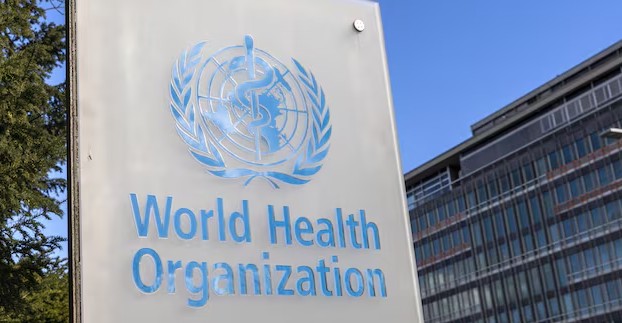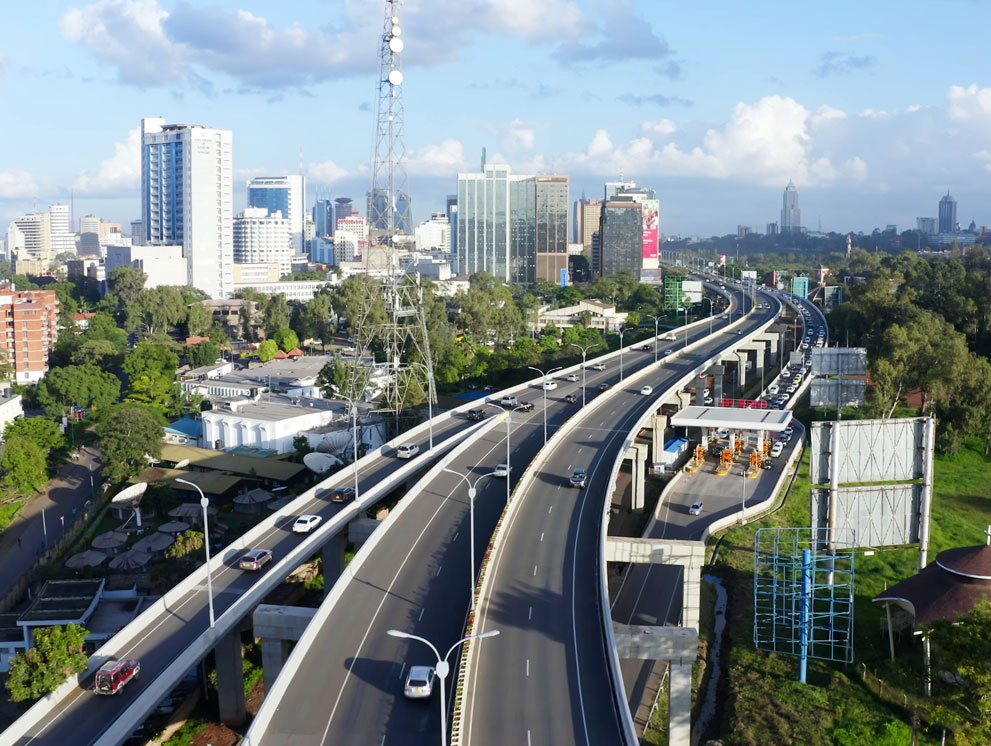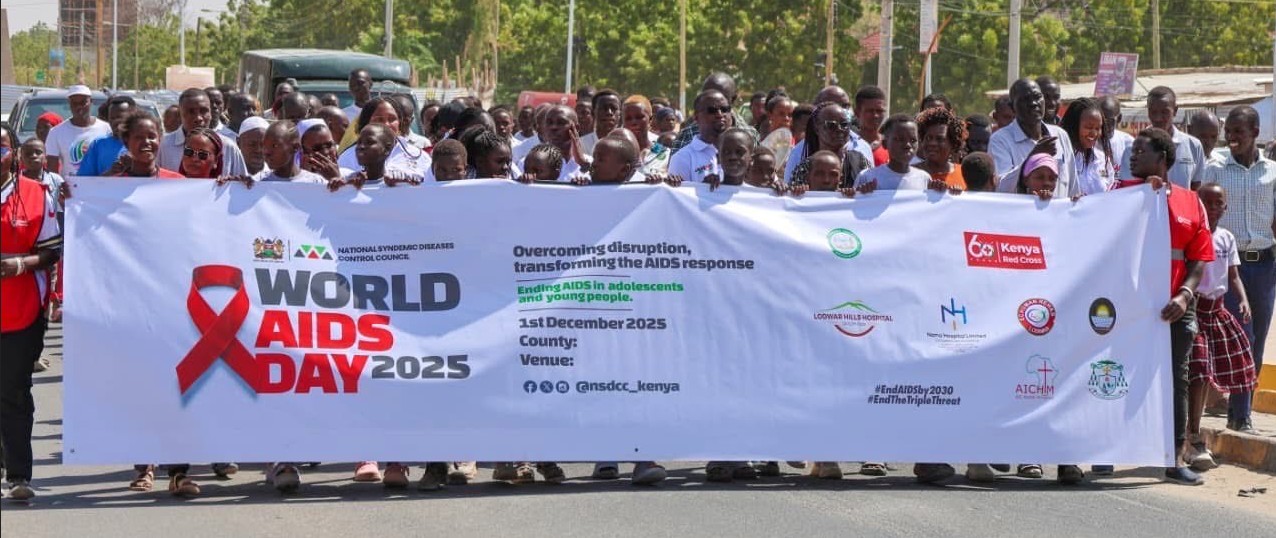How crackdowns on protests exposed escalating human rights abuses in Kenya
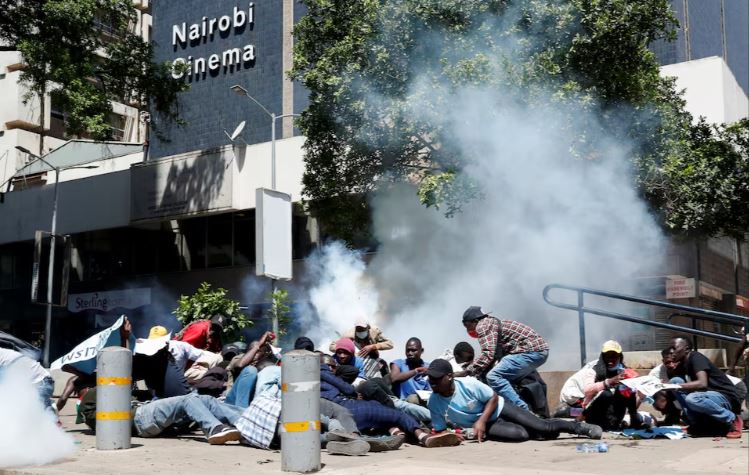
Police shot directly into crowds, killing protesters and bystanders. The authorities have continued to track down people believed to be protest leaders or one of the estimated 3,000 protesters involved in the parliament invasion.
Kenya’s human rights trajectory deteriorated over the past year. The authorities restricted the right to peaceful protest in heavy-handed crackdowns against nationwide protests over the high cost of living.
The authorities failed to address the socio-economic causes of protests and, instead, harassed, intimidated, and arrested protest leaders, activists and civil society groups accused of supporting the protests.
More To Read
- Cameroon opposition activist Anicet Ekane dies in custody; party demands accountability
- Ruto and Oburu strengthen UDA-ODM alliance after by-election win
- Ruto unveils Sh400 billion mega dam plan to turn North and Coast regions into Kenya's new food basket
- Ruto says 15,000 jobs on the horizon following launch of landmark highway expansion
- Ruto says Kenya can attain first-world status within three decades
- Petition filed to stop multi-billion Rironi–Nakuru–Mau Summit road project
President William Ruto publicly threatened the courts for making decisions unfavourable to his administration. The authorities have rarely investigated or prosecuted law enforcement officers implicated in human rights abuses.
Men, women, and children with real or perceived psychosocial disabilities continue to be shackled—chained or locked in small, confined spaces—due to inadequate support and mental health services, and prevalent stigma.
The International Criminal Court (ICC) deputy prosecutor announced in November 2023 that she would not pursue additional investigations in the country related to the post-election violence in 2007-2008; ICC arrest warrants remain pending against two Kenyan individuals accused of witness tampering.
Police brutality against protesters
From June 18, Kenya faced intense street protests that continued through August, over taxes proposed in the Finance Bill 2024 to meet International Monetary Fund (IMF) revenue targets that would disproportionately fall on people with low incomes.
The protests organised largely by Kenyans between the ages of 18 and 35 reached their peak with the invasion of parliament on June 25. Protesters opposed taxes on goods and services such as bread, menstrual products, and mobile money transfers used by many informal workers. Protest anger evolved to include government waste and corruption and the worsening neglect of public services.
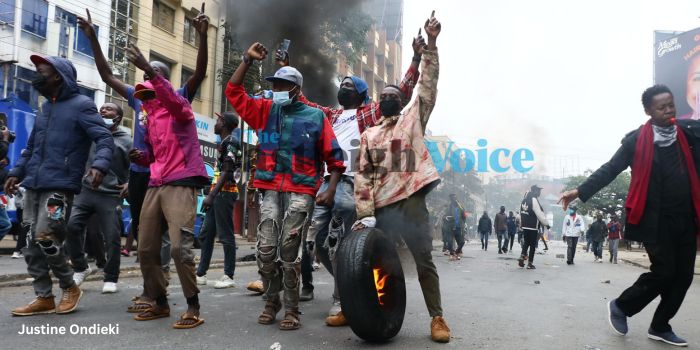 Protesters confront police officers along Tom Mboya Street in Nairobi on Tuesday, July 16, 2024. DP Gachagua's allies have been accused of funding the protests. (Photo: Justine Ondieki/EV)
Protesters confront police officers along Tom Mboya Street in Nairobi on Tuesday, July 16, 2024. DP Gachagua's allies have been accused of funding the protests. (Photo: Justine Ondieki/EV)Protesters confront police officers along Tom Mboya Street in Nairobi on Tuesday, July 16, 2024. (Photo: Justine Ondieki/EV)
Police shot directly into crowds, killing protesters and bystanders. The authorities have continued to track down people believed to be protest leaders or one of the estimated 3,000 protesters involved in the parliament invasion.
Several of these people have either been arrested or abducted by suspected security agents and then forcefully disappeared. On June 31, a preliminary report of the state-funded Kenya National Commission on Human Rights (KNCHR) said that police had killed at least 60 protesters and abducted another 66 people.
Bodies of people showing signs of torture continued to turn up in rivers, forests, abandoned quarries, and mortuaries. The authorities have yet to investigate or prosecute anyone for these crimes.
Kenya has a history of police brutality and a lack of accountability for serious abuses by security forces. Requests by several of the United Nations special rapporteurs, including the rapporteur on the right to freedom of assembly and association and the rapporteur on extrajudicial, summary or arbitrary executions, to visit to investigate abuses have been pending approval from Kenyan authorities for years.
Human rights concerns in Kenya’s tax proposals
As in 2024, Kenya also experienced protests in 2023 in response to tax proposals in the Finance Bill 2023. President Ruto signed the 2023 bill into law despite a parliamentary report showing more than 90 per cent of Kenyans opposed it, and was similarly set to sign the 2024 bill despite strong opposition.
The tax bills come in the context of an IMF programme that initiated economic measures which increased the cost of living and undermined human rights. Neither the government nor the IMF published impact assessments to ensure that the policies they are pursuing are best for the fulfilment of people’s economic, social, and cultural rights.
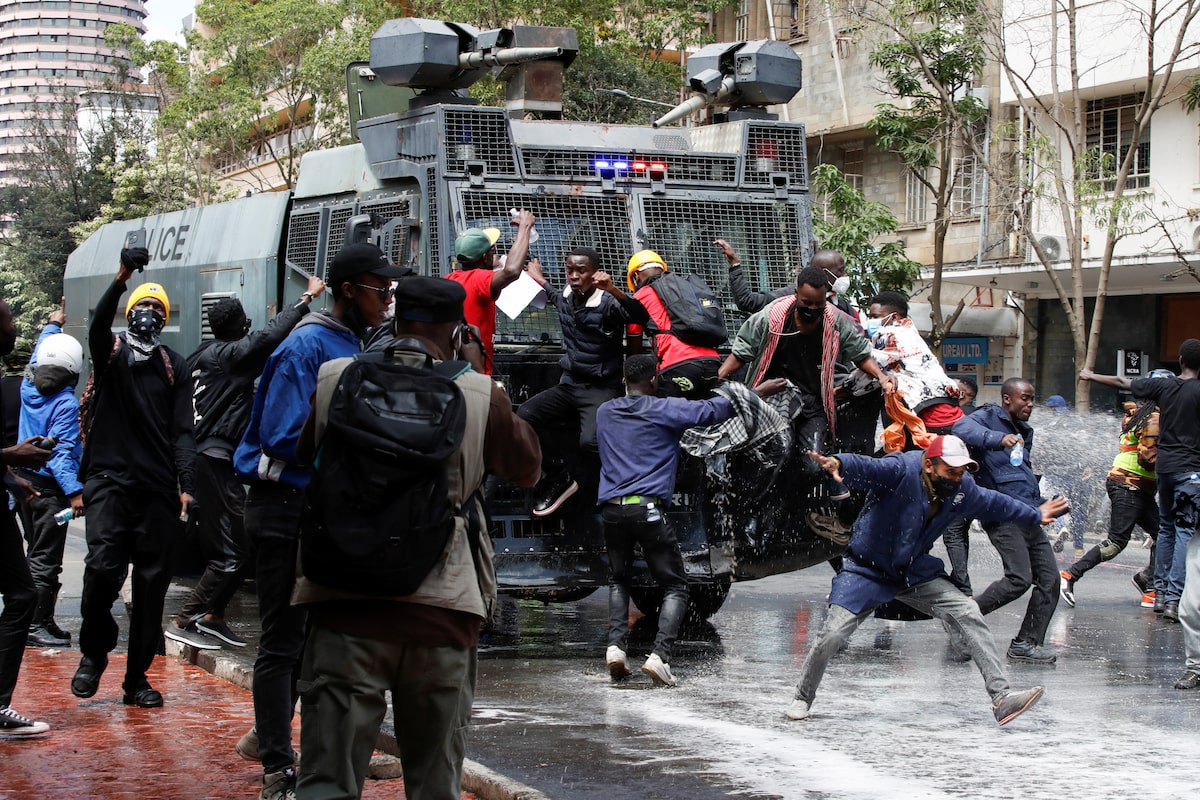 Demonstrators during Kenya’s Gen Z protests against the Finance Bill 2024 in June. (Photo: Handout)
Demonstrators during Kenya’s Gen Z protests against the Finance Bill 2024 in June. (Photo: Handout)
Kenya’s spending on health, education, and other services essential for rights continued a downward trend and remains far below international standards under an IMF program.
Disobedience of court orders and threats to judges
Senior Kenya government officials, including the president, publicly threatened people who filed court petitions to challenge the 2023 Finance Bill and 2023 Housing Levy.
President Ruto accused the petitioners, and what he described as corrupt courts that listen and give them favourable decisions, of sabotaging his government. The president’s close allies threatened to deal with judges they accused of colluding with petitioners to sabotage the president’s development agenda.
The president initially ignored court orders halting his government’s decision to deploy Kenyan police to Haiti without following due process. He later publicly declared that “the courts will not stop me,” and approved the deployment of police to Haiti without addressing all the concerns raised by the courts.
In August 2024, police ignored a Habeas Corpus application by the families of three abducted activists—Jamil Longton, Aslam Longton, and Bob Njagi—in which the court found then Inspector General of Police, Gilbert Masengeli, in contempt of court. The authorities responded by withdrawing the judge’s security details.
Threats against civil society, media
In response to the tax protests, the authorities threatened civil society groups and some donor organisations for allegedly supporting the protests financially.
President Ruto publicly accused the Ford Foundation both of funding the protests and funding civil society organisations (CSOs) such as Kenya Human Rights Commission and Katiba Institute, whom he accused of organising the protests.
In July, the chairman of the Public Benefit Organisations Regulatory Authority, Mwambu Mabonga, said the authority had asked the Directorate of Criminal Investigations to investigate at least 16 CSOs for allegedly operating illegally and for receiving money from the Ford Foundation to fund the protests.
In July, some media outlets reported that the authorities summoned their editors and threatened them over live coverage of the protests. Kenyan media subsequently stopped the live coverage of the protests. President Ruto said he had the power to shut down media over the live coverage of protests but he opted not to do so.
Kenya deploys police to Haiti
A long-awaited United Nations-authorised Multinational Security Support mission (MSS) led by Kenya, finally deployed to Haiti in June. The mission’s mandate, renewed in September, was to support the Haitian National Police in restoring basic security and state control, and strong policies in place to monitor the force’s conduct, ensure respect for human rights, and avoid the failures and abuses associated with past international interventions in Haiti.
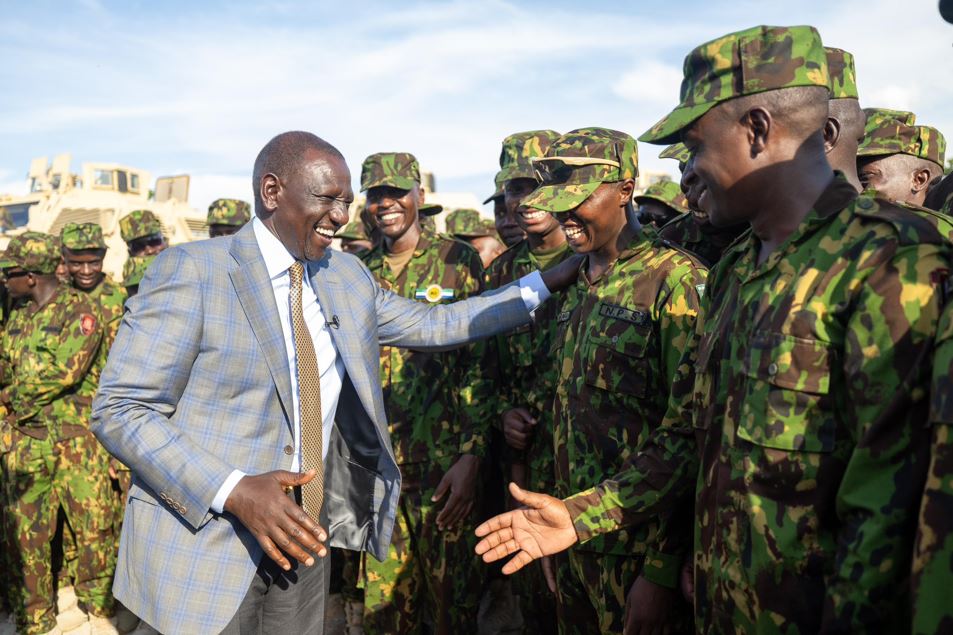 President William Ruto greets members of the Kenya Police after he arrived in Haiti to review security assistance at the Toussaint Louverture International Airport, in Port-au-Prince, Haiti, September 21, 2024. (Photo: PCS)
President William Ruto greets members of the Kenya Police after he arrived in Haiti to review security assistance at the Toussaint Louverture International Airport, in Port-au-Prince, Haiti, September 21, 2024. (Photo: PCS)
The MSS, originally authorised in October 2023, faced legal and funding hurdles including slow commitments to a trust fund to fund its operations and a High Court decision which found the order to deploy police officers to Haiti unconstitutional. A June status of forces agreement between Kenya and Haiti partially addressed the court's objections.
Violence against women and girls
Violence against women and girls, including high femicide rates, remain prevalent in Kenya. Approximately 13 women and girls are murdered each week and 130 cases of sexual violence are reported each week.
Fifteen percent of women and girls have been subjected to Female Genital Mutilation (FGM) and 13 percent of girls are married by the age of 18. Eighty three percent of women and girls are subjected to at least one form of obstetric violence during pregnancy, childbirth, and the post-partum period.
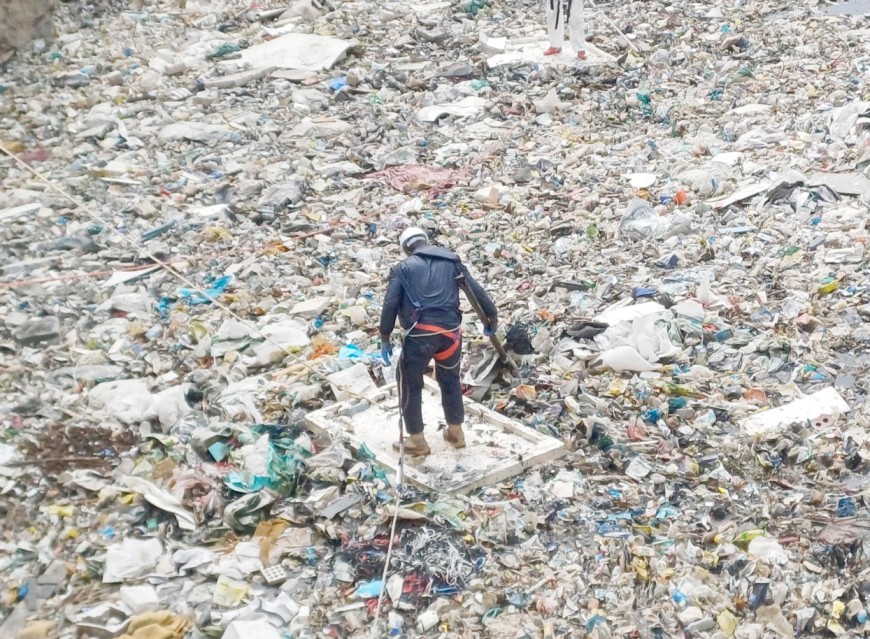 A volunteer searching for bodies at the Kware dumpsite on July 31, 2024. (Photo: Mary Wambui, EV)
A volunteer searching for bodies at the Kware dumpsite on July 31, 2024. (Photo: Mary Wambui, EV)A volunteer searching for bodies at the Kware dumpsite on July 31, 2024. (Photo: Mary Wambui, EV)
Between July and August 2024, parts of bodies, many of which belonged to women, were found in a dumpsite in Nairobi. Authorities stopped retrieval efforts after 17 bodies were retrieved despite additional bodies remaining in the dumpsite.
Only one victim was identified, and no one has been charged with the murder.
In April, Catholic priest Dominic Nzioka, was found guilty of inappropriately touching a 16-year-old girl in his congregation. Nzioka was sentenced to seven years for indecent assault of a child, but, on appeal, the High Court of Mombasa sentenced him to three years’ probation and monthly summons under Kenya’s Sexual Offences Act.
Sexual orientation and gender identity
Kenya still criminalises consensual same-sex relations. Article 162 of the penal code punishes “carnal knowledge against the order of nature” with up to 14 years in prison, while article 165 makes “indecent practices between males” liable to up to five years in prison.
Top Stories Today
